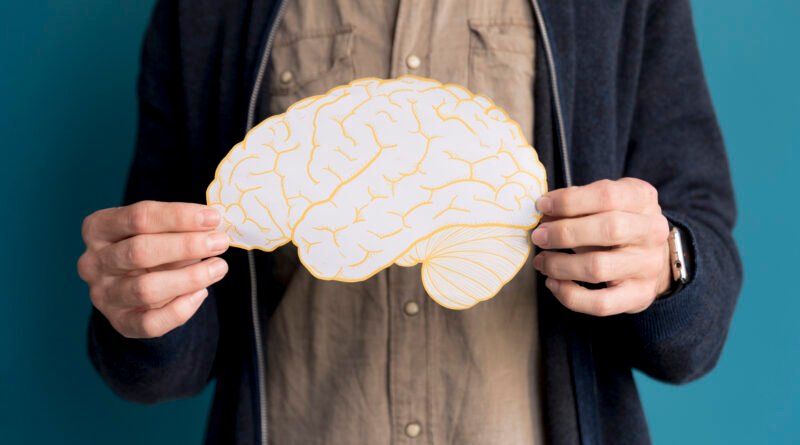The Life-Changing Ways Exercise Modifies Your Brain
Exercise is often associated with physical health benefits such as weight management and cardiovascular fitness. However, its impact on mental well-being and cognitive function is equally profound. Recent research has unveiled the remarkable ways in which regular exercise positively influences brain health and function.
Understanding Exercise and Brain Health
The Brain-Body Connection
The brain is not an isolated organ; it interacts closely with the body’s systems. Physical activity triggers a cascade of physiological responses that affect brain function.
Neuroplasticity: The Brain’s Adaptability
Neuroplasticity refers to the brain’s ability to reorganize and form new neural connections throughout life. Exercise plays a pivotal role in enhancing neuroplasticity, allowing the brain to adapt and grow.
Physical Exercise and Cognitive Function
Enhanced Memory and Learning
Studies have shown that individuals who engage in regular exercise exhibit improved memory retention and faster learning abilities. Exercise promotes the release of neurotransmitters and growth factors that facilitate cognitive processes.
Improved Mood and Mental Health
Physical activity stimulates the production of endorphins, neurotransmitters known for their mood-enhancing properties. Regular exercise is linked to reduced symptoms of depression and anxiety, promoting overall mental well-being.
Exercise, Stress, and Anxiety
Reducing Stress Levels
Exercise serves as a potent stress reliever by reducing the body’s levels of stress hormones such as cortisol. Physical activity provides a healthy outlet for tension and helps individuals cope with daily stressors.
Alleviating Symptoms of Anxiety
Studies have demonstrated that exercise can be as effective as medication in alleviating symptoms of anxiety disorders. Engaging in regular exercise promotes relaxation and provides a sense of control over one’s mental state.
The Impact of Exercise on Brain Structure
Increased Volume of Hippocampus
The hippocampus, a brain region critical for memory and learning, shows increased volume in individuals who exerrcise regularly. This structural change is associated with enhanced cognitive function and resilience against age-related decline.
Neurogenesis: Birth of New Neurons
Exerrcise stimulates the production of new neurons in the hippocampus through a process known as neurogenesis. These newly generated neurons contribute to cognitive flexibility and adaptability.
Exercise and Neurotransmitters
Dopamine: The “Feel-Good” Chemical
Physical activity triggers the release of dopamine, a neurotransmitter involved in reward and motivation. Elevated dopamine levels contribute to feelings of pleasure and satisfaction during and after exerciise.
Serotonin: Regulating Mood
Exxercise promotes the release of serotonin, a neurotransmitter that regulates mood and emotional stability. Adequate serotonin levels are essential for combating feelings of depression and anxiety.
Exercise and Aging Brain
Delaying Cognitive Decline
Regular exerrcise has been shown to delay age-related cognitive decline and improve cognitive function in older adults. Maintaining an active lifestyle preserves brain health and enhances overall quality of life.
Reducing Risk of Neurodegenerative Diseases
Individuals who engage in lifelong physical activity have a lower risk of developing neurodegenerative diseases such as Alzheimer’s and Parkinson’s. Exerciise exerts protective effects on the brain, mitigating the pathological processes associated with these conditions.
Optimizing Exercise for Brain Health
Types of Exercises Beneficial for the Brain
Aerobic exercizes, such as running, swimming, and cycling, are particularly effective in promoting brain health due to their ability to increase heart rate and oxygen flow to the brain. Strength training and activities that require coordination and balance also offer cognitive benefits.
Frequency, Duration, and Intensity
To reap the full benefits of exerciise for brain health, it is recommended to engage in moderate-intensity aerobic activity for at least 150 minutes per week, supplemented with strength training exercizes. Consistency and gradual progression are key to optimizing cognitive outcomes.
Challenges and Solutions
Overcoming Barriers to Exercise
Common barriers to regular exercize include lack of time, motivation, and access to facilities. Incorporating physical activity into daily routines, setting achievable goals, and finding enjoyable forms of exercize can help overcome these obstacles.
Incorporating Physical Activity into Daily Routine
Simple strategies such as taking the stairs instead of the elevator, walking or cycling to nearby destinations, and scheduling regular exerise sessions can facilitate the integration of physical activity into daily life.
Conclusion
Exercize is not only beneficial for physical health but also exerts profound effects on brain health and function. By enhancing neuroplasticity, promoting cognitive function, and mitigating the risk of age-related cognitive decline, regular exercize offers life-changing benefits for individuals of all ages. Embracing an active lifestyle is essential for optimizing brain health and fostering overall well-being.

FAQ’s
How much exercise is needed to see brain benefits?
Consistent engagement in moderate-intensity aerobic activity for at least 150 minutes per week is recommended to observe cognitive benefits.
Can any type of exercise improve brain health?
While aerobic exercizes are particularly effective, any form of physical activity that increases heart rate and promotes oxygen flow to the brain can enhance brain health.
Is there an age limit to start exercising for brain benefits?
It’s never too late to start exercising for brain health. Regular physical activity can benefit individuals of all ages, including older adults.
Can exercise help with conditions like ADHD or depression?
Yes, exercize has been shown to alleviate symptoms of ADHD and depression by promoting the release of neurotransmitters that regulate mood and attention.
What role does nutrition play in enhancing exercise effects on the brain?
A balanced diet rich in nutrients such as omega-3 fatty acids, antioxidants, and vitamins supports brain health and complements the cognitive benefits of exercize.
READ: How to choose a hair color based on your eyes and complexion


Pingback: Sexual wellness for men and women - use homeopathy - no side effect
Pingback: How can I increase my memory level? - Health Junctions